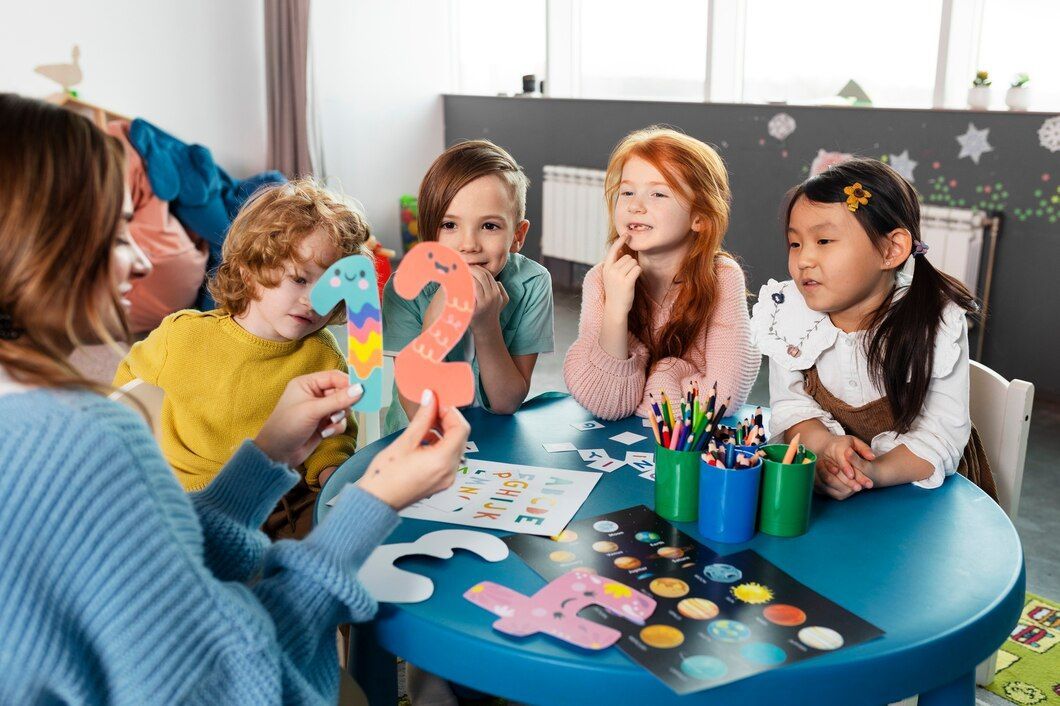The Importance of Grace and Courtesy in Montessori Education
At the core of Montessori education lies a deep commitment to fostering the growth and development of the whole child – not only their intellectual and physical abilities, but also their social and emotional growth. One of the essential components in achieving this holistic approach is the emphasis on grace and courtesy.
Montessori educators understand that cultivating a sense of respect, kindness, and empathy among children is instrumental in shaping compassionate and considerate members of society. At Marlboro Montessori Academy, we believe that grace and courtesy are foundational in creating a nurturing, inclusive, and community-driven environment for our students.
In this blog post, we will explore the fundamental principles and values of grace and courtesy within Montessori education, and discuss the various ways these vital social skills are cultivated within our classrooms. Furthermore, we will delve into the long-term benefits of embedding grace and courtesy within a child's educational journey, including improved social skills, conflict resolution abilities, and a profound sense of empathy and understanding for others.
Through this exploration, you will gain a deeper understanding of the values and principles that Montessori education upholds, and learn how adopting these practices can positively shape your child's character, relationships, and overall future success. Embrace the transformative power of grace and courtesy as you embark on an enriching Montessori educational journey with your child.
The Principles of Grace and Courtesy in Montessori Education
Montessori education is built upon the principles of respect, empathy, and consideration for others. Grace and courtesy are the practical expressions of these principles, guiding children as they develop essential social skills and interact with the world around them. Here are a few key tenets of grace and courtesy:
1. Acknowledging the Needs of Others
Teaching children to recognize and acknowledge the needs of others is fundamental for fostering empathy and understanding. Montessori classrooms promote this awareness by encouraging children to pay attention to and care for their peers and environment.
2. Demonstrating Respectful Communication
Respect is at the core of Montessori education, and mastery of respectful communication is crucial for fostering positive relationships. Children are guided in learning how to listen actively, express their thoughts clearly, and engage in polite and civil discourse with others.
3. Exhibiting Considerate Behavior
Montessori classrooms foster considerate behavior by teaching children the proper etiquette for various situations, such as greeting peers and educators, practicing good hygiene, or respectfully using shared resources.
Cultivating Grace and Courtesy in Montessori Classrooms
Grace and courtesy are interwoven throughout many aspects of a Montessori learning environment. Here are some ways these valuable skills are cultivated within the classroom:
1. Role-Playing and Modeling
Montessori educators often use role-playing scenarios and direct modeling to teach children appropriate behavior in varying social situations. By engaging in these activities, children gain practical experience in exercising grace and courtesy and learn the value of respectful and considerate interactions.
2. Creating a Supportive Classroom Environment
A supportive, inclusive, and nurturing classroom environment is essential for the practice and growth of grace and courtesy. Montessori classrooms are designed to promote cooperation, collaboration, and mutual respect among students and educators.
3. Encouraging Community Involvement
Participation in classroom activities and community projects allows children to apply the principles of grace and courtesy in meaningful ways, strengthening their understanding of empathy, teamwork, and collaboration.
The Lasting Impact of Grace and Courtesy on Children's Lives
When children develop strong foundations in grace and courtesy, they benefit from numerous lasting advantages that extend well beyond the classroom.
1. Enhanced Social Skills
Children who practice grace and courtesy are more prepared to communicate effectively, navigate social situations, and build strong relationships with others. These skills translate to success in both personal and professional settings throughout their lives.
2. Effective Conflict Resolution
As children learn to respect and empathize with others' perspectives, they also develop valuable conflict resolution skills. They become equipped to approach disagreements with an open mind, collaborate on finding solutions, and navigate challenges with minimal contention.
Fostering a Sense of Global Citizenship
Grace and courtesy extend beyond local borders, teaching children to appreciate and respect the diverse cultural backgrounds and perspectives of others. This foundation breeds respect, understanding, and cooperation among future global citizens.
Embracing the Power of Grace and Courtesy in Montessori Education
Incorporating the principles of grace and courtesy into every aspect of a Montessori education sets the stage for children's success as compassionate, responsible, and respectful citizens. As children develop essential social skills and empathy for others, they gain the tools necessary to contribute positively to their communities and the world at large.
Looking for a
Montessori education that fosters values of grace and courtesy in students? Look no further than Marlboro Montessori Academy! Our carefully crafted learning environments, supported by a community of dedicated educators, are designed to provide a robust Montessori education that emphasizes the importance of mutual respect and understanding. Contact us today to learn more about our programs and how they can benefit your child's future! #MontessoriEducation











